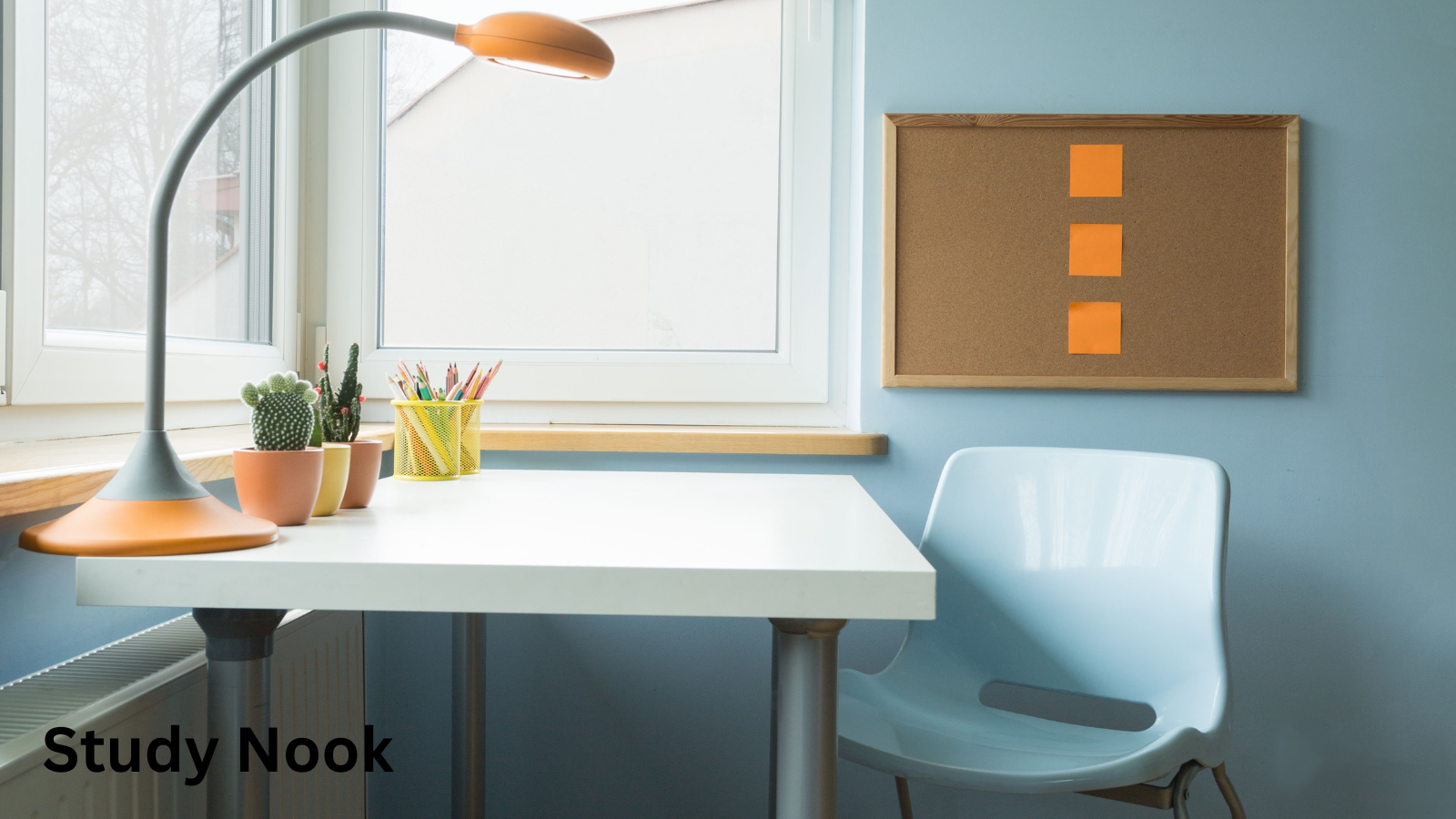How to create a daily writing habit with a dedicated nook
Learning to write well can be really hard work. It takes lots of practice and it’s easy to get distracted by things that are, frankly, more interesting.
To build a solid daily writing habit:
- create a dedicated basic writing nook: a quiet corner in a room or hallway away from the TV, radio, electronic devices and other people.
- stock your writing nook with everything you need to write: a small desk or card table, a comfortable simple chair, a small desk lamp, a jar stuffed with pencils, pens, and an eraser, and a stack of lined writing paper. Restock as needed at the end of each session.
- If you can’t find enough quiet space, use headphones and play white noise or use earplugs. (No music.)
- Establish a specific daily writing habit, tied to an existing daily routine, for example, “Immediately after washing the dishes, I will go to my writing nook and sit there for at least 15 minutes”.
During the 15 minutes, sit at the table and write. Do it every day, and never miss more than one day in a row.
Related articles:
11 ways to improve writing interventions for struggling students
How to help a disorganised student: some practical ideas and resources
Teaching students about text types won’t – on its own – make them good writers
Learning to handwrite fluently gives your child a big advantage

Hi there, I’m David Kinnane.
Principal Speech Pathologist, Banter Speech & Language
Our talented team of certified practising speech pathologists provide unhurried, personalised and evidence-based speech pathology care to children and adults in the Inner West of Sydney and beyond, both in our clinic and via telehealth.








